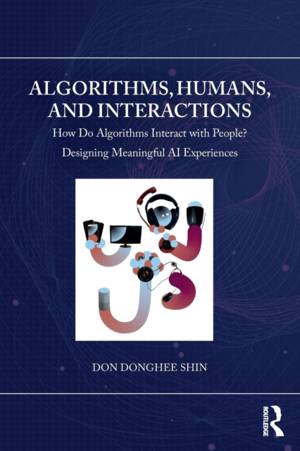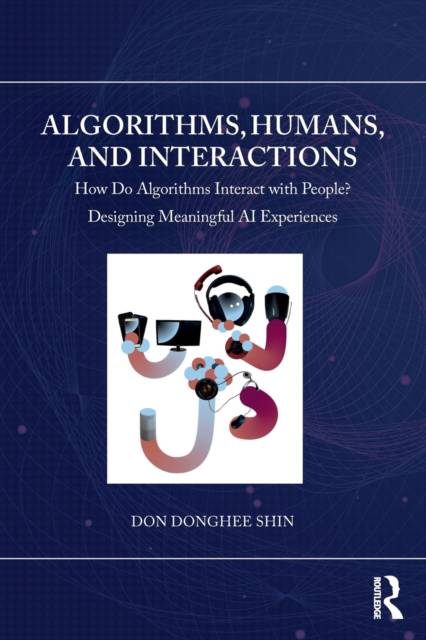
- Afhalen na 1 uur in een winkel met voorraad
- Gratis thuislevering in België vanaf € 30
- Ruim aanbod met 7 miljoen producten
- Afhalen na 1 uur in een winkel met voorraad
- Gratis thuislevering in België vanaf € 30
- Ruim aanbod met 7 miljoen producten
Algorithms, Humans, and Interactions
How Do Algorithms Interact with People? Designing Meaningful AI Experiences
Don Donghee ShinOmschrijving
Amidst the rampant use of algorithmization enabled by AI, the common theme of AI systems is the human factor. Humans play an essential role in designing, developing, and operationalizing AI systems. We have a remit to ensure those systems run transparently, perform equitably, value our privacy, and effectively fulfill human needs. This book takes an interdisciplinary approach to contribute to the ongoing development of human-AI interaction with a particular focus on the "human" dimension and provides insights to improve the design of AI that could be genuinely beneficial and effectively used in society. The readers of this book will benefit by gaining insights into various perspectives about how AI has impacted people and society and how it will do so in the future, and understanding how we can design algorithm systems that are beneficial, legitimate, usable by humans, and designed considering and respecting human values. This book provides a horizontal set of guidelines and insight into how humans can be empowered by making choices about AI designs that allow them meaningful control over AI. Designing meaningful AI experiences has garnered great attention to address responsibility gaps and mitigate them by establishing conditions that enable the proper attribution of responsibility to humans. This book helps us understand the possibilities of what AI systems can do and how they can and should be integrated into our society.
Specificaties
Betrokkenen
- Auteur(s):
- Uitgeverij:
Inhoud
- Aantal bladzijden:
- 200
- Taal:
- Engels
- Reeks:
Eigenschappen
- Productcode (EAN):
- 9781032332970
- Verschijningsdatum:
- 31/01/2023
- Uitvoering:
- Paperback
- Formaat:
- Trade paperback (VS)
- Afmetingen:
- 156 mm x 234 mm
- Gewicht:
- 312 g

Alleen bij Standaard Boekhandel
Beoordelingen
We publiceren alleen reviews die voldoen aan de voorwaarden voor reviews. Bekijk onze voorwaarden voor reviews.











